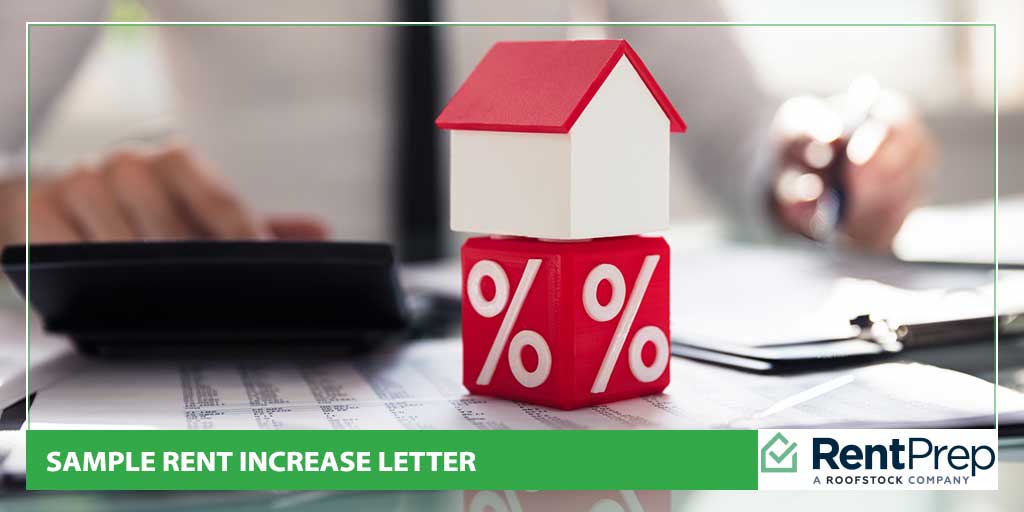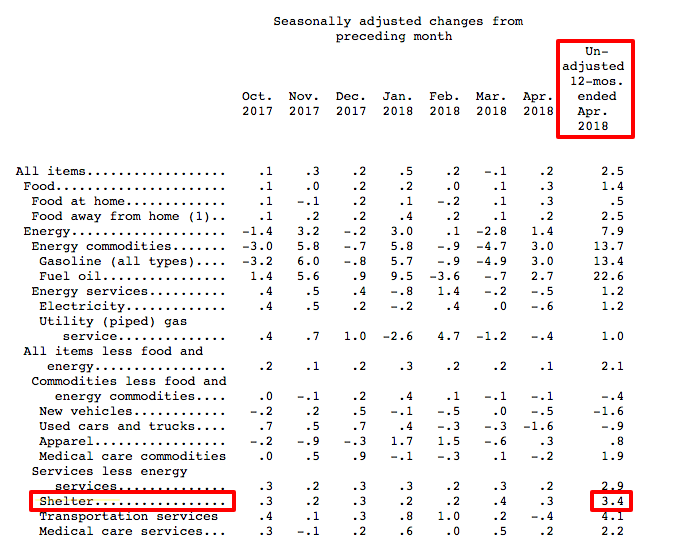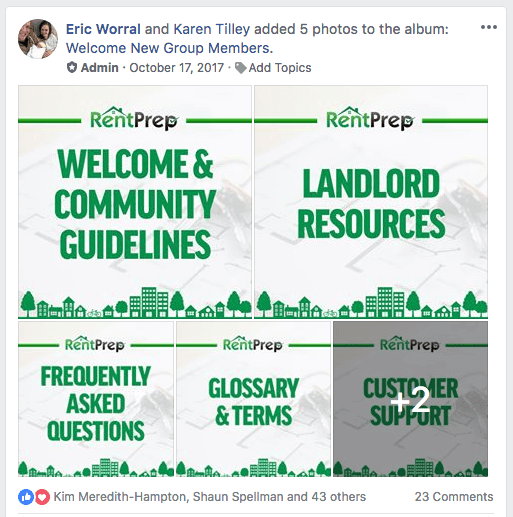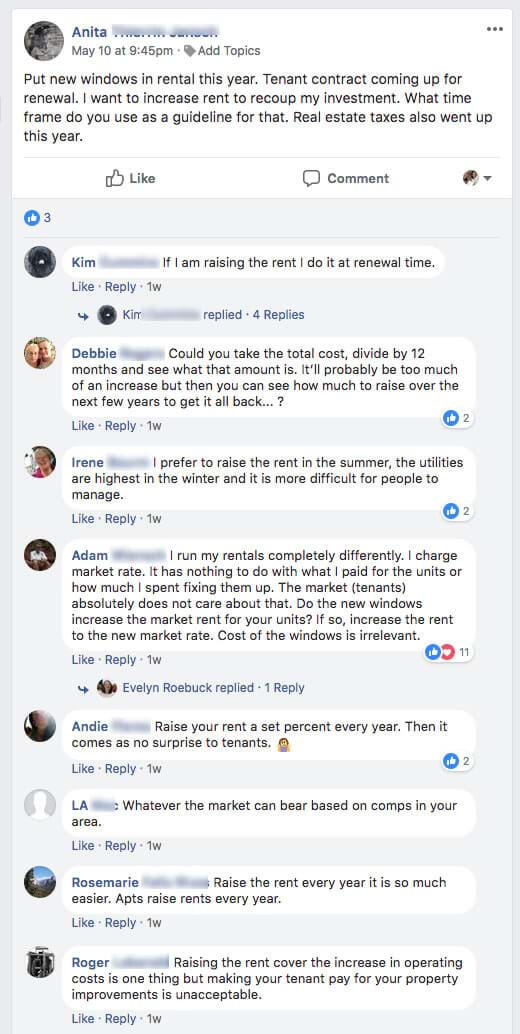
Owning rental property means you own a business. And when you own a business, you need to remember that your goal is to continuously improve your revenue streams.
One important thing for landlords to focus on is changing rent to reflect market rates, inflation, and tax hikes that will otherwise eat into your cash flow.
Below you will find everything that you need to know in order to properly deliver a rent increase letter. The Notice of Rent Increase letter is especially important, so make sure you pay close attention to how it should be used!
A Table of Contents for Providing a Rent Increase Letter:
- What is a Rent Increase Letter?
- Calculating Annual Rent Increase
- Can I Increase Rent Based on Improvements?
- Sample Rent Increase Letter
- Sample Rent Increase Templates
- Delivery Instructions for the Rent Increase Letter
- Rental Control Laws
- Facebook Community Discussion on Increasing Rent
- FAQs on Increasing Rent
What is a Rent Increase Letter?

A rent increase letter is a formal notification of an increase in rent for a current tenant. These are typically given 30-60 days before the end of a current lease. A rent increase letter performs two major functions in that it clearly communicates the increase in rent to the tenant and officially documents the increase.
Using an officially formatted rental increase letter is important for all landlords to follow. With this type of letter, you can be sure that you have checked all legal boxes for notifying and enforcing a rental letter. In other words, you are protecting the integrity of your business!
Calculating Annual Rent Increase
The standard rule of thumb is for the annual rent increase to be somewhere between 3 to 5 percent. If you’d like to provide specific reasoning for the level of increased rent, I’d suggest checking out the Consumer Price Index Summary.
As of April 2018, the 12-month index for shelter increased 3.4%. You can find the most up-to-date numbers by clicking the CPI link above and scrolling down to the chart.
Look for the highlighted section in this image.

In this example, if your tenant is paying $1,000 a month in rent and you go by the CPI index for April 2018, you’d increase rent by 3.4% or $34 per month.
Many apartment buildings will build into the lease a set annual increase of 3-5%. This method makes it clear upfront that the rent will increase each year and allows the tenant notice to budget accordingly.
Can I Increase Rent Based on Improvements?
There are many landlords out there that will have the mentality that rent should be increased proportionately to every change that they make to the property.
While that is a common thought, the price should not be increased just because you put in new windows or paved the driveway. Those improvements are adding to the long-term rentability of the home, but the price should always be based on comparable market rates.
If homes in the area with new roofing rent for around $100 more monthly than those with old roofing, you can increase your rent accordingly after replacing it. If the status of the roof makes no difference in rent, increasing your cost will only hurt your bottom line.
Sample Rent Increase Letter
The Balance Small Business put together a sample of a rent increase letter, but I thought it left out one major aspect: Non-compliance.
What is non-compliance and how does it apply in this case?
Non-compliance, in this case, is when a renter believes that you are unfairly increasing the rent, so it’s important to address what happens if they choose not to pay the increased rent amount. Including a clause related to non-compliance in your increase letter is important.
By making sure you have this clause, you’ll be able to set up a plan for both parties as to what will happen if they do not agree to the increase. Laying this information out from the beginning of the increase process will help it to run more smoothly.
Sample Rent Increase Letter Templates

Now that you know a bit more about when to use a rent increase letter, let’s talk about how to actually put together an increase letter!
The goal of your rent increase letter is to explain the following information to the tenant very clearly:
- What will the rent be changing to?
- When will that change be effective?
- When the tenant will need to move out if they do not agree to the rent change?
- When a new lease can be signed if they do agree to the rent change?
- What will happen if the tenant refuses to come to an agreement?
By outlining all of this information clearly from the day that you deliver the rent increase letter, communication between you and the tenant will be much smoother.
Even with the knowledge that you need to put that information into the letter, sending out your first rent increase letter can be a stressful process. For that reason, we have a few sample rent increase templates that can help you out:
- Sample rent increase letter Word Doc
- Sample rent increase letter Google Doc
- Sample rent increase letter PDF
The Word Doc and Google Doc include comments to guide you on what to input for your situation. The PDF does not include the helpful comments.
If you prefer to use Google Drive (that’s all we use), the link above will automatically create a copy of the Google Doc once you click it.
Here’s exactly what the landlord rent increase letter template looks like:
TO: ____________________________
____________________________
____________________________
1. Purpose of Notice: This Notice is to inform the Tenant that the Landlord ___________________ will be increasing the Tenant’s rent. Beginning on, _____________ , the monthly rent for for your rental located at, _________________________________ , will be increased to _______________ per month. The Tenant’s current tenancy will be terminated on _____________ as per the term of the current lease agreement.
The new lease is being offered at monthly rate of ______________ .
All changes can be found in the Tenant’s new lease agreement.
2. Termination of Tenancy: The Tenant’s current tenancy will expire on _____________ . If the Tenant does not agree to rent the unit at the increased monthly rental price, the Tenant and all occupants of the unit must vacate the unit by _____________. All standard move-out procedures apply as the rental will be free of damages and broom-swept clean in order to receive a full security deposit refund.
3. Acceptance: If the Tenant agrees to rent the unit at the increased rental price of ______________, per month, the Tenant may remain on the premises, but must sign and adhere to the terms of a new lease agreement at the agreed upon monthly rent. By remaining in the property after the termination date of the original lease agreement, the Tenant is agreeing to the increased monthly rent and to adhere to any other reasonable changes to the lease agreement.
4. Non-compliance: At the start of the new lease agreement the Tenant is required to pay the full rent amount of ___________. If the full amount is not paid the tenant will be assessed a late fee of __________ per day. If the Tenant does not pay the full rent of __________ plus late fees the Landlord will issues a “Pay or Quit Notice” to be followed by an eviction notice.
The monthly rental payment is due on or before the ___ day of each month.
Landlord Signature: ______________________
Date: __________________________________
——- END OF LETTER ——–
Delivery Instructions for the Rent Increase Letter
Once you have determined what you are going to increase the rent to and written the letter as outlined above, it’s time to deliver the rent increase letter to the tenant. As for the physical delivery of the rent notification, it’s never a bad idea to be overly thorough.
We’d recommend to send the rent increase letter via certified mail and you can also scan and email a copy of that letter to your tenant. Kindly request that the tenant confirms receipt via a reply email.
Why do you need to be so careful to make sure the tenant receives a copy of the letter? This is all in an effort to cover your bases if you ever find yourself in court with the tenant.
Delivery Timing
The timing of the letter is also crucial. As with most official housing letters, there is a specific amount of time you must give to the tenant to take your new rent increase into account. If you don’t give them enough time, they do not have to follow the mandates laid out in the letter.
You want to make sure you’re giving your tenant the appropriate amount of lead time with your notification. This can vary from state to state and even by the municipality, so it is important to do local research before proceeding from this point.
There are, however, some general rules you can follow when sending out your letter:
- A safe rule of thumb is to give this notice 60 days before the end of the lease.
- If you’re already inside of the 60-day window, you’ll want to research your specific situation.
- For month-to-month rentals, the landlord can raise the rent (subject to any rent control laws) with proper written notice in typically 30 days. [source: Nolo]
Rental Control Laws
Be aware of any rent control laws in your area. California, Washington, D.C., Maryland, New Jersey, and New York are the five states that have had rent-controlled communities that limit the amount a landlord may charge for some time. Other states, such as Illinois, may also be subject to these rules.
I’d suggest doing a Google search of “rent increase notification (your state).”
If you click the provided link above it will show you articles for NYS. The first Google listing is for the Tenant’s Right Guide of NYS.
Here are some interesting takeaways from that PDF.
- In New York City, each rent-controlled apartment has a maximum base rent that is adjusted every two years to reflect changes in operating costs.
- Tenants may challenge increases if the rent being charged by the landlord exceeds the legally regulated rent, the building has housing code violations, the owner’s expenses do not warrant an increase, or the owner is not maintaining essential services.
- For New York City rent stabilized tenants, the landlord must give written notice to the tenant of the right to renewal by mail or personal delivery not more than 150 days and not less than 90 days before the existing lease expires.
- After the notice of renewal is given, the tenant has 60 days in which to accept.
- A landlord may raise the rent of a month-to-month tenant with the consent of the tenant. If the tenant does not consent, however, the landlord can terminate the tenancy by giving appropriate notice.
- For rent stabilized apartments in New York City, the rent adjustment collectible in any one year may not exceed six percent of the tenant’s rent.
- For all rent controlled or stabilized apartments outside New York City, the permanent adjustment collectible in any one year may not exceed fifteen percent of the tenant’s rent.
Confusing, right? And a bit different from the general guidelines that we have laid out above! For that reason, you can see why it’s so important to understand your local laws.
If you join our private Facebook Group “RentPrep for Landlords”, you can join a discussion with over 7,500 landlords and property managers. That link will provide you with a password for the group.
You will be greeted by a pinned welcome post that looks like this:

One of the “LANDLORD RESOURCES” is a link to a post within the group that shares every State’s Landlord Handbook.
You can read your state’s handbook to learn about any regulations relating to lease renewals and increasing rent.
Facebook Community Discussion on Increasing Rent
The group is a tremendous resource, and we’ve highlighted one discussion thread (of many) you might find helpful.
Personally, I agree with Adam’s approach to increasing rent.

FAQs on Increasing Rent
There are a few more FAQs related to increasing rent and rent increase notices that are worth mentioning today.
Where can I get a free printable rent increase letter?
If you’re looking for a free printable rent increase letter, just click here and print! The comments will guide you on exactly what to write in each blank space in the document. It doesn’t have to be hard to get the money your property deserves.
What’s the deal with California rent increase laws?
California rent increase laws are a little different than other States and vary by area.
Some California cities have rent control ordinances that limit or prohibit rent increases. Some of these ordinances specify procedures that a landlord must follow before increasing a tenant’s rent… Each community’s ordinance is different. [source: Department of Consumer Affairs]
The following locations have Rent Stabilization boards that have specific rules in place for how rent increases are handled:
- Berkeley Rent Stabilization Board
- Los Angeles Housing Department
- San Francisco Rent Board
- Santa Monica Rent Control Board
- West Hollywood Rent Stabilization Commission
Each of those links will provide you with specifics on any laws relating to rent increases in the State of California.
Know Your Facts
The number one thing to keep in mind while you are working on a letter to a tenant to increase rent is that you need to be familiar with the local laws. While we can advise you about the general methods of increasing rent, it’s your duty as a good landlord to double check the rules that apply to your property.
With the help our sample rent increase letter option provides, it does not have to be hard to change the rent on a property. It’s time to see the profits that you deserve!

